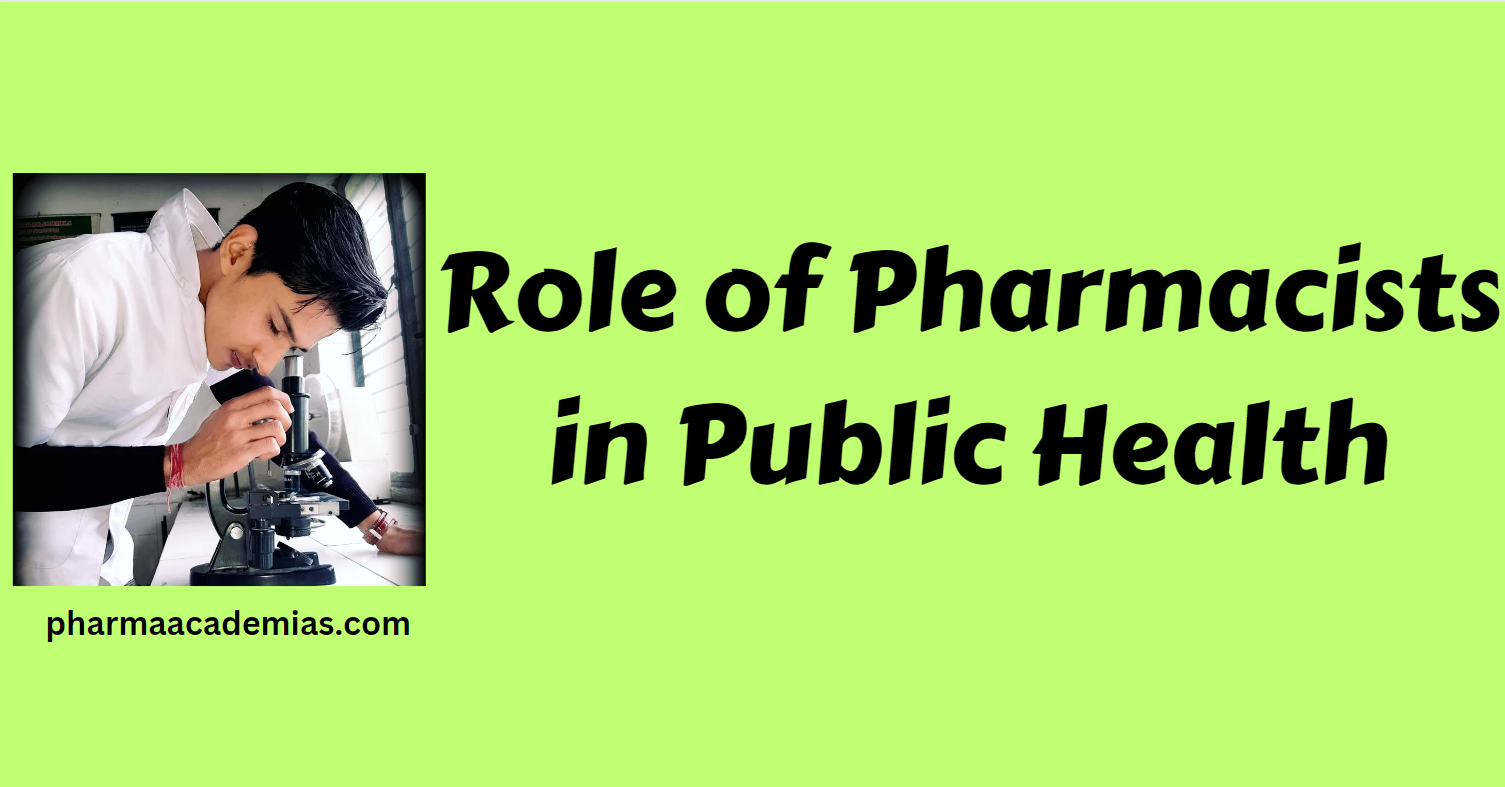Pharmacists play a crucial and evolving role in public health, contributing significantly to the well-being of communities. Their expertise extends beyond traditional dispensing responsibilities, encompassing various facets of healthcare delivery, health education, and preventive services. The multifaceted role of pharmacists in public health can be detailed as follows:
1. Medication Management and Counseling
Medication Adherence: Pharmacists ensure patients understand their prescribed medications, helping to enhance adherence and optimize therapeutic outcomes.
Drug Interactions: They assess potential drug interactions, mitigating risks and promoting patient safety.
2. Immunization Services
Pharmacists are integral in providing immunization services, promoting community-wide vaccination, and preventing the spread of infectious diseases.
3. Chronic Disease Management
Pharmacists actively engage in managing chronic diseases such as diabetes, hypertension, and asthma through medication therapy management.
They collaborate with other healthcare professionals to optimize treatment plans and improve patient outcomes.
4. Health Promotion and Education
Pharmacists educate the public on health-related topics, emphasizing lifestyle modifications, disease prevention, and the responsible use of medications.
They contribute to public health campaigns, raising awareness about various health issues.
5. Community Outreach Programs
Pharmacists engage in community outreach initiatives, providing health screenings, wellness checks, and counseling services.
They actively participate in health fairs and events to reach diverse populations.
6. Tobacco Cessation Programs
Pharmacists assist individuals in quitting tobacco through counseling and the provision of nicotine replacement therapy.
They contribute to public health efforts to reduce the prevalence of smoking and tobacco-related diseases.
7. Emergency Preparedness
Pharmacists play a vital role in emergency preparedness, ensuring the availability and accessibility of essential medications during crises.
They collaborate with other healthcare professionals and public health agencies to respond effectively to emergencies.
8. Medication Safety Advocacy
Pharmacists advocate for medication safety, implementing measures to reduce medication errors and adverse drug events.
They educate patients on the safe storage and disposal of medications.
9. Collaboration in Interprofessional Teams
Pharmacists collaborate with physicians, nurses, and other healthcare professionals in interprofessional teams to provide comprehensive patient care.
They contribute their medication expertise to enhance treatment plans and promote patient well-being.
10. Public Policy and Advocacy
Pharmacists advocate for public health policies that improve medication access, affordability, and safety.
They actively engage in discussions on healthcare reform and policies affecting public health.
11. Global Health Initiatives
Pharmacists contribute to global health efforts, participating in medication access programs and disease prevention campaigns.
12. Research and Innovation
Pharmacists research to advance pharmaceutical knowledge and contribute to evidence-based practices in public health.
They innovate in drug development, pharmaceutical care models, and public health interventions.
Pharmacists serve as vital healthcare professionals with a holistic role in promoting public health. Their contributions go beyond the pharmacy counter, encompassing education, prevention, and collaboration to enhance the health and well-being of individuals and communities. As the healthcare landscape evolves, the role of pharmacists in public health continues to expand, reflecting their commitment to community health and patient-centered care.

